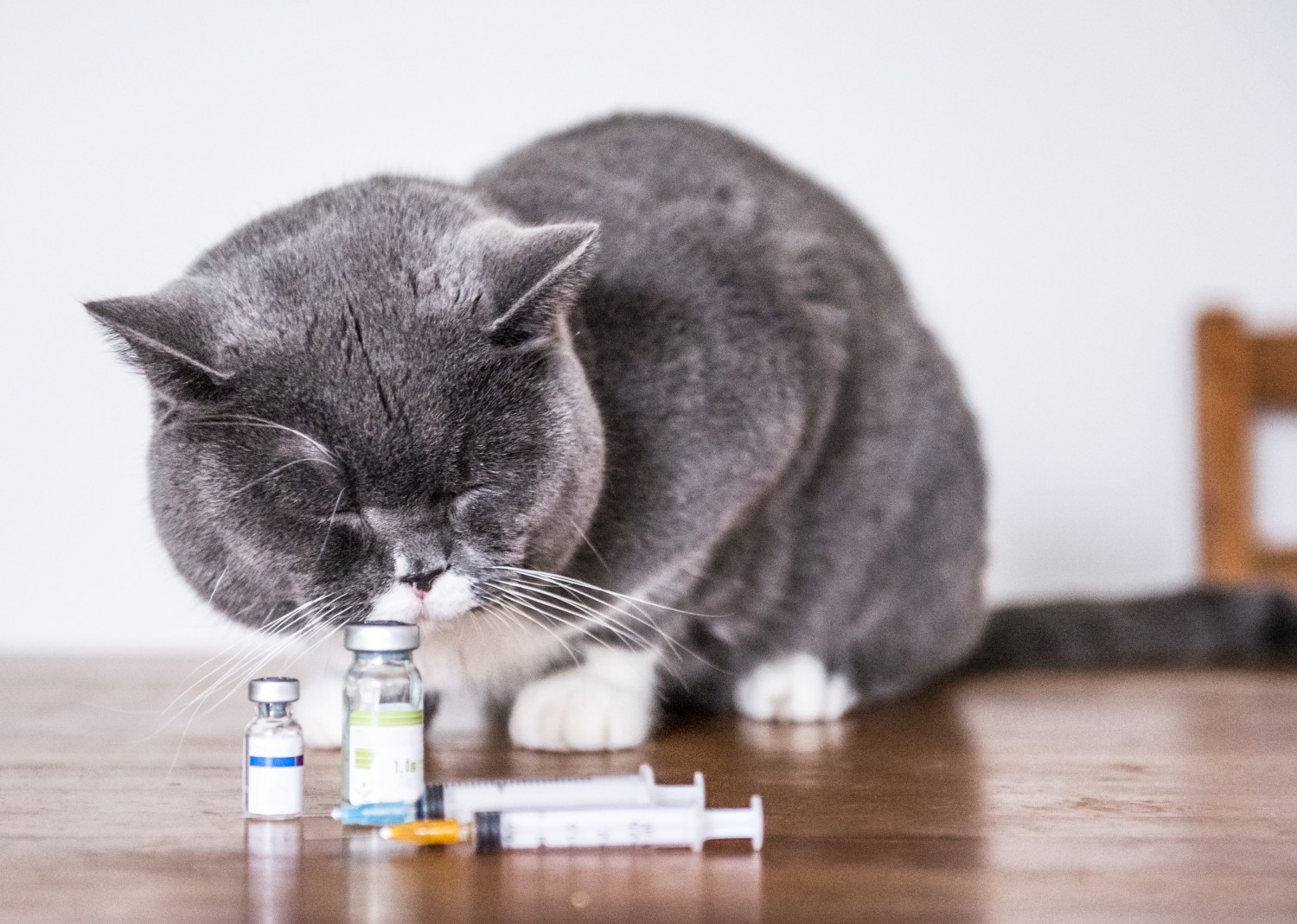|
Vaccinations
 What Do Vaccines Do? What Do Vaccines Do?
Vaccines introduce antibodies into your pet's system that will help them fight off diseases that are known to be harmful to your dog or cat. These are just like the vaccinations that are given to human babies but the diseases are different. These vaccines help the body produce a defense system against the disease, helping your pet fight if they come into contact with it.
When Should I Get Vaccines?
Vaccines come in two categories, core and non-core. The best way to know when and which non-core vaccines are necessary is to talk with a veterinarian that you trust. These shots will depend upon what the needs are in your part of the country and your animal's health. For the core vaccines that are necessary for all dogs or cats, the schedule is a simple one.
Puppies and kittens have natural immunity from disease during their early weeks due to their mother's milk. Once weaned, at the age of six to eight weeks, it is time to start the core immunizations. Vaccines for canine parvovirus, distemper, canine hepatitis, and rabies are considered core vaccines. Vaccines for panleukopenia (feline distemper), feline calicivirus, feline herpesvirus type I (rhinotracheitis) and rabies are considered core vaccines.
For puppies, the first series of shots should be given at eight weeks. This is followed by two more doses by the time they are sixteen weeks old. Some shots will need boosters and your vet can tell you when that is necessary. An example of this is the rabies vaccine, which comes in one-year and three-year doses and are recommended over the entire course of your pet's life.
For kittens, a first dose will be given at eight weeks and then two more doses at four-week intervals. Again, they need boosters throughout their lives every one to three years.
It isn't possible to give all the doses to your wee one all at once. First, too much of the vaccine at once can cause harm to your pet. Secondly, your puppy or kitten needs time for its system to build up an immunity to the particular disease. This can only be done slowly. By spreading out the doses, you allow their bodies the time needed to adapt.
How Care Veterinary Services in Millington Can Help
Contact us today to see if your pet is updated on all its vaccines. We offer all the core shots and more. Vaccines now can keep your little one happy and healthy for years to come.
|